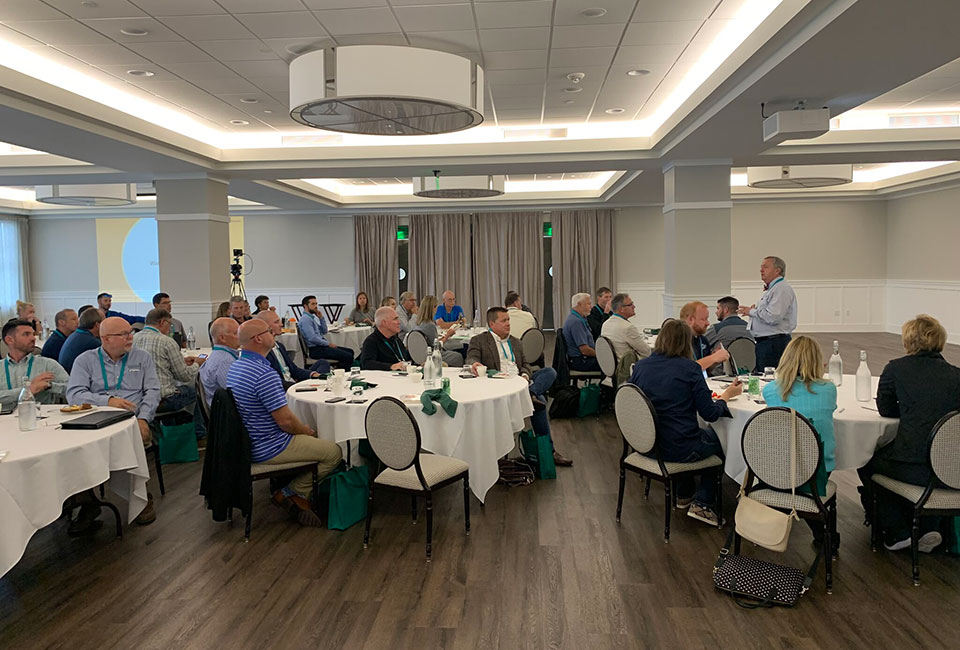Inclusive Leadership and The Future of Work (Part 2)

After writing Inclusive Leadership and The Future of Work as a follow up to The Future of Work: You Don’t Need a Plan. You Need a Commitment, one could argue that this piece is less a Part II and more the completion of a trilogy. Neither was intentional – simply evolutionary.
That said, I delivered a keynote address last week to a gathering of Renaissance Executive Forums leaders and members. We talked about what forums do so brilliantly and why its members (as CEOs, business owners, and key executives) are uniquely equipped to engage their employees as co-authors in writing their own future of work. The work these members do with one another during their monthly meetings helps build muscles for creating collaborative and inclusive work environments. Why is this important, especially today? Because as we seek to write the next chapter for what’s next, leaders will either involve their employees and succeed, or dictate to them and fail. Skeptical?
Why Change Initiatives Fail
Consider this: For years, McKinsey, Harvard’s John Kotter (arguably the most renowned authority on organizational change), and others have suggested that 70% of change initiatives fail. Even though no one can tell you precisely where that number comes from, if you need additional evidence, it may be more accurate to suggest that 65%-92% of change initiatives either fail or perform below expectations. Both outcomes are sobering. The good news is there’s general agreement about why the results are so poor, and we can do something about it.
Here’s how McKinsey frames it: “The most significant impact on a major change effort’s outcome is the ownership and commitment to change across all levels of the organization. The greatest driver for successful change (67%) and unsuccessful change initiatives (65%) was how employees throughout the organization felt ownership and commitment to the change.”
It’s not that the change or strategy is so bad, it’s the inability to get everyone rowing in the same direction – to own the solution – that’s the problem. Peer advisory groups and forums, by definition, operate using the principle of owning the solution first, implementing it second. Not the other way around – like most organization’s sporting failed change initiatives.
How You Can Make Your Change Initiative Succeed
In the context of our dialogue about Peernovation and having intentional conversations with your employees about the iterative process of writing and living your own future of work, here are my five keys to inclusive leadership:
- Write Your Future State Together
Martin Luther King didn’t recite an “I have a plan speech,” he delivered the “I have a DREAM speech” – a narrative of soaring aspirational rhetoric that included us all. He didn’t impose his vision on us, he invited us to share in its glory. Inspiring a truly “shared vision” is what Jim Kouzes and Barry Posner have been espousing for years. It’s among their five exemplary practices of leadership. - Model Leadership Behaviors
Speaking of Kouzes and Posner, they’ll also tell you how important it is for a leader to model the way. For example, if you want to create psychological safety at every level in your organization, it has to start with the leader. Alan Mullaly’s relentless pursuit of this dynamic at Ford Motor Company was a hallmark of his time there as CEO from 2006-2014. The power of we begins with the leader. - Ensure Reinforcing Actions
I enjoyed the good fortune of having read a wonderful book titled, The Customer Comes Second by Hal Rosenbluth & Diane McFerrin Peters. I modeled the company I once owned (before selling it) after the premise of this book, which is about prizing employees first and clients (customers) second. If you want your clients to experience true service excellence, it must come from the passion your employees bring to the equation. The genius of the book is not the premise, which anyone can grasp in the first few paragraphs, it’s the level to which the authors deliver on its promise everywhere and in every way imaginable in the organization. No contradictions – just thoroughly walking the talk. - Learning & Growing
Harvard Business School’s Amy Edmondson says that when a company has high levels of psychological safety and accountability, they operate in the Learning Zone. If you’re familiar with Peernovation, you know that what happens in the Learning Zone is something we call The Learning-Achieving Cycle. It’s how people, learn, share, apply, and achieve as part of a daily commitment to excellence. - Framing & Frequent Celebration
For my money, the advice of keeping your eye on the prize is the worst advice you could give anyone. For example, if you have ever climbed a mountain and experienced the emotional debilitation that comes with such an act, you recognize the importance of setting short-term goals, acknowledging your progress, and celebrating small wins along the way. If you don’t, your chances of actually making it to the summit are – in a word – compromised.
Today’s Change?
The balance of power has shifted from employer to employee. The sooner you make peace with that, the easier it will be for you to swim with the current. Here is what McKinsey tells us about the shifting attitudes of how employees want to work:
So, if you want to write the future of work that is best for you and your organization, the path is clear. Get the input you need from everyone in your organization at every level who has skin in the game. Listen to what they have to say and dedicate yourselves to delivering against the promises you make to one another and your stakeholders. Once you do that, be prepared to pivot at every turn. Enjoy the ride!
Written by Leo Bottary.
Add CEOWORLD magazine to your Google News feed.
Follow CEOWORLD magazine headlines on: Google News, LinkedIn, Twitter, and Facebook.
Copyright 2024 The CEOWORLD magazine. All rights reserved. This material (and any extract from it) must not be copied, redistributed or placed on any website, without CEOWORLD magazine' prior written consent. For media queries, please contact: info@ceoworld.biz









